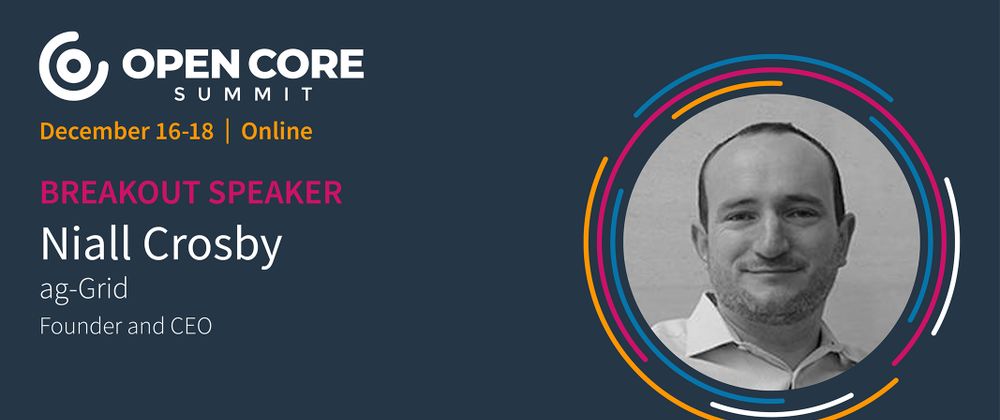Niall Crosby is an entrepreneur and coding enthusiast, who has been building end-to-end web applications for 16 years. From C, C++ and assembly to Java, GWT and JavaScript. Developer behind ag-Grid, a new data grid choice for AngularJS applications. Currently building the next generation of financial reporting tools for Royal Bank of Scotland.
Relevant Links
LinkedIn
How ag-Grid became a multi-million dollar business providing the industry leading JavaScript Data Grid utilizing Open Source and Sweat Equity
Initially, how did you come to learn about open source and how did ag-Grid get started? - 0:32
When did you actually have this realization that you could release this technology and make it better for the world and open source it at your bank? And when did you then start the company, and what was the delta between those two events? - 2:24
I want to actually dig into this data grid category. There doesn’t seem to be a consistent understanding of what a data grid is, when you describe sorting and aggregations and so on. You can accomplish this with ETL tools, you can accomplish this with data integration middleware. How did the data grid market or space or technology area kind of come to be? Why do you see it as such a growth area. adjacent, to all these other data management tools? - 4:40
So this is the front end to all the other tools that integrate and marshall the data, and basically let you slice and dice and explore the data more context-specifically, with the front end JavaScript. (Niall responds) - 5:54
From the origin of starting ag-Grid, how did you come to be convinced that ag-Grid needed to exist? What did the data grid market look like five years ago, and how have you seen it evolve over the last five years? - 8:14
How did the business evolve in the first year? What did you do intentionally to drive adoption and growth and generally the sort of awareness of Ag-grid? Explain how you saw that first year. - 9:45
How did you think about the first hires, and what influenced that? How did you prioritize who to hire first in terms of general role, and then, how have you gone about thinking through the decision making process, of which people are good cultural fit? How has the culture evolved? - 12:17
What you were actually selling in the very beginning? You've talked about how you're able to grow a revenue stream much more rapidly by charging money for something versus just asking for donations. So, in the very beginning, how did you actually construct the enterprise version to differentiate from the open source project? What features were jumping out to you that was sort of obvious to include in the beginning? And how has that evolved over time? - 18:03
Have you been able to mitigate the risk of paid features seeing friction and demand from the open source communities? What is your approach to that overall equation? - 20:15
How did you think about hiring the first few people? Over time, what have been the most crucial roles to hire for as you've grown the company? - 22:01
How do you see this part of the technology stack evolving? Do you see data grids being as important as graph databases for example? What do you see is the horizon and the 5-10 year outlook for data grids in the enterprise? - 25:28
What ag-Grid provides is sort of real-time data discovery and rendering, that enables much richer slicing and dicing and graphing of data than the traditional BI analytics tools and represents a new type of data discovery platform. If you were to think of the category, whether it's called data grid or something else, the enterprise data grid space is very underrecognized, in comparison to the Tableau and ClickViews of the world. (Niall responds) - 28:16
What do you think about WebAssembly, in terms of the relationship with what ag-Grid is doing to the data grid space and things so central to JavaScript, and WebAssembly’s relationship with Javascript? - 29:58
How would you reflect on mistakes and things you would have done differently, or things you would have changed had you known something else, through all the learnings you've gathered in the last five years? - 33:30
Share your questions and comments below!



Top comments (0)